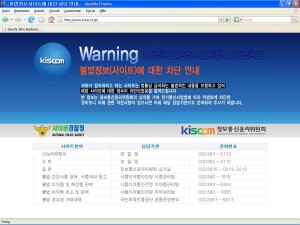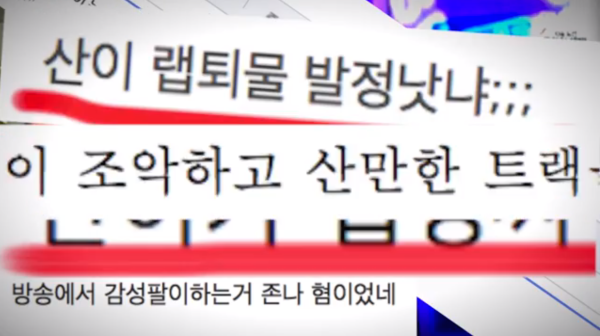 In the wake of the recent Seonam Girls High School Investigators lesbian kiss scene and the KCSC investigation, many international fans expressed their surprise at Korean netizens’ supportive comments on the show’s content — many were expecting negative reactions to the controversial scene. Similarly, when a dating scandal breaks, we international fans eagerly await the oncoming netizen storm of blessings, rage or even complete apathy that is bound to come.
In the wake of the recent Seonam Girls High School Investigators lesbian kiss scene and the KCSC investigation, many international fans expressed their surprise at Korean netizens’ supportive comments on the show’s content — many were expecting negative reactions to the controversial scene. Similarly, when a dating scandal breaks, we international fans eagerly await the oncoming netizen storm of blessings, rage or even complete apathy that is bound to come.
To international K-pop fans — somewhat unfortunately — the netizen has become a gauge for our perception of the reactions over in the motherland. It makes sense that we feel the need to read the domestic reactions because they give us a sense of being “in the know” about the Hallyu events unfurling halfway around the world from many of us. Let’s face it — we international fans certainly are important — but the K-fans are the ones who do the heavy lifting and often are the ones who reap the benefits of their labor. Additionally, the netizen comments offer a glimpse into a culture that we oftentimes are confused by or simply wish to understand better.
One needn’t look further than plethora of sites that translate netizen comments into English to understand our dependence and interest in the domestic reactions. Even more interestingly, the original article is frequently never fully translated, and the netizen comments stand in place of the actual news story. What is concerning about this relationship is that oftentimes the comments are sought out in order to breed a combative environment of I-fans versus K-fans — where I-fans hypocritically boast to be above Korea’s misogyny, bigotry and plastic-ness and use the limited sample netizen opinions as definitive proof of South Korea’s backwards conservative ways.
We, as Hallyu fans, also know netizens for their innate ability to start controversies. Artists such as Tablo, Jay Park, B.I (iKon), Hyosung, T-ara and Crayon Pop have all fallen into controversies started by netizen accusations. While some of the netizen claims may have been legitimate, many were not, and instead resulted from netizens acting as instigators of defamation.
 However, netizens are also remarkable at getting to the bottom of something — especially when mainstream journalism fails to do so. It’s no surprise that only a few months ago jokes were made about the potential for the “Netizen Investigation Unit” that could probably investigate any scandal better than than mainstream outlets or even authorities. Going through various Daum or Naver Cafe, it’s almost alarming how quickly netizens pull up media and evidence when they are hellbent on proving something. It’s also no wonder that journalists prowl these fan cafes looking for the next big celebrity scoop. Netizen accusations — be they political or social — carry with them a significant amount of weight. International fans can support a group all they want, but if public opinion turns against them in Korea, they are as good as finished (cough T-ara).
However, netizens are also remarkable at getting to the bottom of something — especially when mainstream journalism fails to do so. It’s no surprise that only a few months ago jokes were made about the potential for the “Netizen Investigation Unit” that could probably investigate any scandal better than than mainstream outlets or even authorities. Going through various Daum or Naver Cafe, it’s almost alarming how quickly netizens pull up media and evidence when they are hellbent on proving something. It’s also no wonder that journalists prowl these fan cafes looking for the next big celebrity scoop. Netizen accusations — be they political or social — carry with them a significant amount of weight. International fans can support a group all they want, but if public opinion turns against them in Korea, they are as good as finished (cough T-ara).
While we may question the opinions of the netizens we encounter in the Hallyu world all we want, this author would like to argue that we should by no means belittle and generalize the Korean netizen because there are so many facets of Korean netizen culture to which we as international fans are not privy. The broader context of netizen culture has not only transformed Korean consumption of news and culture but also shaped many political movements in contemporary Korean history. The netizen movement is far more than a tiny sampling of netizen comments within the Hallyu sphere.
 Netizen — a neologism of the words “internet” and “citizen” — comes to describe people who use the internet for a specific purpose. In the South Korean context, the netizen is one who uses the internet as a location of discourse and community. There is no single kind of South Korean netizen either — there are the conservatives (read: angry misogynists) of Ilbe, the more liberal guerrilla journalists of OhMyNews, the teenagers of Pann, the devout fan girls of various groups’ fan cafes, and, of course, the more mainstream population that frequents Nate, Daum and Naver. All these users converge in their respective online communities and embody the South Korean Netizen in their own unique ways.
Netizen — a neologism of the words “internet” and “citizen” — comes to describe people who use the internet for a specific purpose. In the South Korean context, the netizen is one who uses the internet as a location of discourse and community. There is no single kind of South Korean netizen either — there are the conservatives (read: angry misogynists) of Ilbe, the more liberal guerrilla journalists of OhMyNews, the teenagers of Pann, the devout fan girls of various groups’ fan cafes, and, of course, the more mainstream population that frequents Nate, Daum and Naver. All these users converge in their respective online communities and embody the South Korean Netizen in their own unique ways.
The “Netizen Movement,” as it is now coined, began in South Korea as a byproduct of the governmental push towards the “Undivided Digital Society,” in the early 2000s, from which internet technology would preserve a sense of nationality even with geographic disparities: “because of the proliferation of cyber cafes, BBS [bulletin board section], and homepages, people with similar ideas could gather regardless of their physical location.” Since the governmental push to connect citizens digitally, South Korea has become one of the most hyper-connected and technologically developed nations in the world, with information circulating through the internet at breakneck speeds.
The political impact of netizen culture is perhaps the most noteworthy result of the Undivided Digital Society. South Korean citizens are beginning to trust the forums and BBS’ more than the state-controlled media forms (television, newspaper, etc.). Most interestingly, the netizen movement challenges the Korean history of vertical communication and power structure, instead opting for horizontal communication and leadership. OhMyNews, as such, is often the site most credited for the birth and empowerment of the Korean netizen activist. Sites like OhMyNews popped up as a reactionary approach to the monopoly of mainstream journalism, both online and elsewhere. Instead of simply reporting the news, OhMyNews founder encouraged his online readers to also be the reporters — together they could produce content, start discourse and effect political change. A remarkable feature of the South Korean Netizen movement — pioneered by sites like OhMyNews — has been the connection between the discourses that take place online and real world action.
 The strength of the Netizen movement in the public sphere has been seen through various demonstrations and protests like the Candle Light Vigils of 2002, the Beef Protests of 2008, the discrediting of scientist Hwang Woo-suk’s stem cell research, in addition to strong political campaigns for progressive candidates in the 2000s (President Roh Muh-hyun had a legitimate online fanclub that promoted him throughout the 2002 election). All of these events began online, with users circulating information that the mainstream media was neglecting to share. Netizens then banded together in very real-world mobilizations for and against causes they were passionate about.
The strength of the Netizen movement in the public sphere has been seen through various demonstrations and protests like the Candle Light Vigils of 2002, the Beef Protests of 2008, the discrediting of scientist Hwang Woo-suk’s stem cell research, in addition to strong political campaigns for progressive candidates in the 2000s (President Roh Muh-hyun had a legitimate online fanclub that promoted him throughout the 2002 election). All of these events began online, with users circulating information that the mainstream media was neglecting to share. Netizens then banded together in very real-world mobilizations for and against causes they were passionate about.
(Even Fan Cafes and Fan Unions of various K-pop idols work to exact real world change from their online communities. The practice of planting tree forests for various idols and groups is a common practice among fan unions in order to make positive changes in honor of their biases.)
Partly because of the realized power of the Korean netizen, Korean internet forums and comment sections function in a way more exclusive than the comment sections many of us international fans are used to. Most, if not all, Korean netizens have to jump through the same complex series of hoops in order to participate in online communities within South Korea. Depending on the amount of traffic a website receives daily, the website may require “real name verification” in order for the internet user to be able to register with the site and participate and converse with other users.
Real Name Verification is a frustrating process used to confirm identity and citizenship — and it’s far more complex than its international confirmation code counterparts. Real Name Verification is linked directly to the confirmation of your Korean Social Security Number — though since it’s illegal to ask directly for an SSN now, websites have to go through proxy methods to confirm identities like cellular phone registrations, bank certificates and or a secret code known as an I-Pin. (Interestingly, these rules and regulations also apply to many fanclubs, which restricts their membership almost exclusively to domestic fans).
 Why does the government create all these hurdles for netizens to jump through in order to be part of an online community? Well, most of it boils down to a sense of accountability and responsibility. The Korean Internet Safety Commission (KISCOM) regulates and monitors internet participation in an attempt to eliminate what it deems as “subversive content.” Subversive content includes (but is not limited to): “materials harmful to minors, cyber defamation, sexual violence, cyber stalking… pornography and nudity,” in addition to images of homosexuality or praise of North Korea. By regulating users’ registration and forcing users to link accounts directly to their own identity, netizens are held accountable for the information they circulate.
Why does the government create all these hurdles for netizens to jump through in order to be part of an online community? Well, most of it boils down to a sense of accountability and responsibility. The Korean Internet Safety Commission (KISCOM) regulates and monitors internet participation in an attempt to eliminate what it deems as “subversive content.” Subversive content includes (but is not limited to): “materials harmful to minors, cyber defamation, sexual violence, cyber stalking… pornography and nudity,” in addition to images of homosexuality or praise of North Korea. By regulating users’ registration and forcing users to link accounts directly to their own identity, netizens are held accountable for the information they circulate.
Netizen culture has become a far-reaching and impactful shift for Korean public discourse. The netizens themselves have risen as a viable force over the past decade and a half, and their influence continues to grow as South Korea becomes more and more hyper-connected. Netizen culture is far too broad to be properly discussed in a single article and definitely more significant and impactful than the small samplings of netizen reactions we as Hallyu fans can access. “Netizen” is a title given to a wide range of people, and I think sometimes we international fans are far too quick to generalize and pigeon-hole the Korean Netizen. Even more potentially dangerous is many I-fans’ willingness to take a sample of netizen reactions as a representation for the whole culture.
Now, the point of this article is not to say that the netizen who helped organize the 2008 Meat Candle Light Vigils is the same one who made a sexist comment about Sulli and her dating scandal. Nor am I advocating that we international fans have no place to criticize that which we see written and translated in the comment section of various articles, as netizen comments offer a rare opportunity to engage in an indirect dialogue with our international counterparts. What I am saying is that all too often we dismiss K-netizens as a being a single breed of people when the reality of Korean internet culture is diverse and far more significant than the reductive generalizations we often thrust on a few sample comments for a news article we probably didn’t even read in the first place.
(YouTube, Time, Korea Expose, The New York Times, Ronda Hauben: Online Grassroots Journalism and Participatory Democracy in South Korea, Jongplil Chung: Comparing Online Activities in China and South Korea, Jinsun Lee: “The Netizen Movement” in Contemporary South Korean Society, Kwan Sik Roh: Uses of Internet in Korea, Images via Brand New Music, YG Entertainment, JTBC, Set-gil.)


